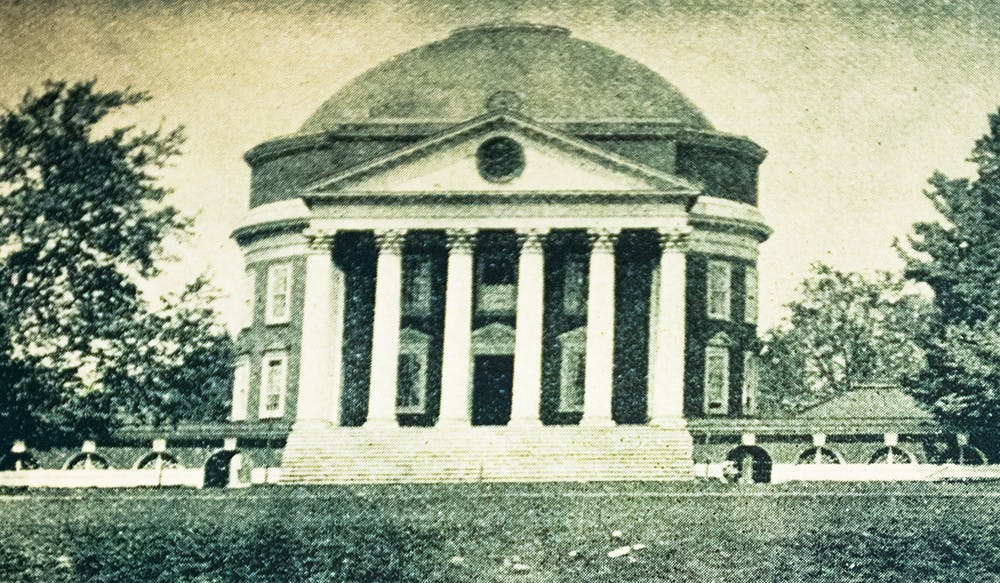The most important aspect of learning about history is that it gives an opportunity to learn from past mistakes — therefore, an institution which does not confront its own history will continue to repeat the same mistakes. While it appeared to be easy for the University to denounce the white supremacists who marched on Grounds and spread violence throughout the streets of Charlottesville, it seems to be much more difficult for the school to properly address the legacy of Thomas Jefferson.
Jefferson himself once wrote “the blacks, whether originally a distinct race, or made distinct by time and circumstances, are inferior to the whites in the endowments both of body and mind.” To put it simply, anyone who believes that one race is superior to another, is a supremacist. Not only did Jefferson believe this, he felt so strongly in this belief, that he wrote down this sentiment on paper and published it in a book, “Notes on the State of Virginia.” Yet, as a country and a school, we continue to deny a truth that is self evident. While Jefferson should and will always be an integral component of the University’s identity, an institution that tries to denounce white supremacy will never be taken seriously as long as it continues to follow a white supremacist as a moral compass.
What the University failed to mention when addressing the “Unite the Right” rally, was that two of the rally’s prominent organizers — Richard Spencer and Jason Kessler — are alumni of the University. While what happened in Charlottesville was a tragedy, it was also an instance in which history repeated itself. It is vital that the University starts to get real with its past, because it is not only an institution whose past is associated with white supremacy, it is also actively produces white supremacists.
The black community at the University will not be satisfied with the University’s response to the events that occurred in Charlottesville until the school makes an honest effort to properly address its own history. The conversation can’t just be about how those white supremacists “don’t represent the real Charlottesville.” Because while the white supremacists may have left for the time being, the actual consequences of white supremacy still persist in the city as well as the entire nation, not solely in the form of Confederate statues. The recent riots in Baltimore and Ferguson draw parallels to the race riots in the 60’s, the private jail system that disproportionately affects black men and the public school system that is about as segregated today as it was 40 years ago — the list could go on. To put it bluntly, segregation, racism and white supremacy still exist today, and these instances will continue to repeat themselves and resurface in American society until serious efforts are made to take a look back at the past and learn from our mistakes.
There is no question that the legacy of Jefferson is quite a polarizing issue here at the University, and my opinion of Jefferson is probably an unpopular one. But the fact is, this issue matters. While Jefferson will always be acknowledged for constructing one of the world’s great democracies, it doesn’t mean we shouldn’t acknowledge the other side of history as well. The only way white supremacy will survive in this country is through continued neglect. The neo-Nazis who marched in Charlottesville aren’t the faces of white supremacy, they are simply a byproduct of it. Instead, the real face of white supremacy in America is the inability to reconcile with our past. The ideologies of white supremacy begin in our middle school history classes, where textbooks idolize figures such as Christopher Columbus, but overlook the plight and suffering of African-Americans, Native Americans and many other minority groups. Despite being a country that so proudly labels itself as being built off of freedom, the sad reality is that its history contradicts that. But, whenever we are asked to confront our dark history, we shy away from it.
As an African-American student at the University, I think it is unfair to be forced to idolize a man who thought that I was inferior to him. As an African-American, I think it is unfair that I should pretend that white supremacy only comes in the form of white men who wear klan robes or bear swastika flags. As an African-American, I think it is unfair that I have to sit in history class after history class where the exploitation of my ancestors has been constantly downplayed for the sake of protecting America’s perception as a place where “all men are created equal.” So, my message to the University and the rest of America is that in order to move forward to a better future, we have to take a look back at the past. I love both the University and America, but that doesn’t mean I am unwilling to criticize them, because being critical of our country and its institutions will be the only way we can grow and defeat white supremacy.
Everett Patterson is a contributing writer for The Cavalier Daily and Black Student Alliance’s “What’s the Word” column.







